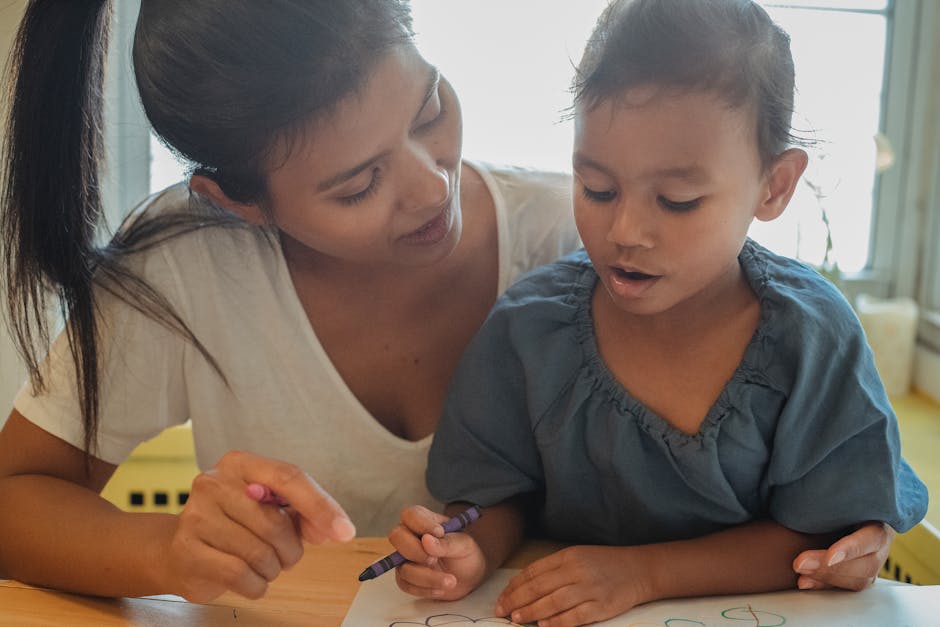Family life, a tapestry woven with countless threads of interaction and experience, profoundly shapes a child’s trajectory. Understanding the factors that nurture thriving, well-adjusted children within this intricate framework is crucial for parents and caregivers. This exploration delves into the multifaceted motivations that propel children to flourish within their family units.
Beyond the obvious necessities like food and shelter, a complex interplay of emotional, social, and intellectual elements contributes significantly to a child’s overall well-being. A crucial initial element lies in the very fabric of the relationship between the child and their primary caregivers. Secure attachment, a bedrock of healthy development, emerges from responsive and consistent caregiving. When a child feels understood, loved, and safe, a profound sense of security arises, enabling them to explore their world with confidence. This secure base serves as a springboard for emotional regulation, social competence, and cognitive growth. Parents who actively listen to their children’s needs, provide comfort during challenging times, and consistently demonstrate affection create an environment where a child feels empowered to grow.
Crucially, this responsive caregiving extends beyond basic needs. Parents who nurture a child’s curiosity and encourage exploration, foster their inherent creativity, and instill a sense of purpose create lasting impacts. A child’s natural inquisitiveness blossoms when parents create opportunities for learning and discovery. Encouraging involvement in activities like arts, music, sports, or community projects not only fosters talents but also develops resilience and a sense of belonging. Furthermore, encouraging open communication channels allows children to express their thoughts and feelings, empowering them to navigate challenges and develop healthy coping mechanisms.
The quality of sibling relationships also plays a substantial role. While sibling rivalry is a natural part of family dynamics, the manner in which these conflicts are addressed can profoundly influence the overall family environment. Parents can foster a sense of cooperation and understanding amongst siblings by teaching empathy and conflict resolution skills. They can highlight the value of shared experiences and encourage healthy competition, which can promote a supportive and mutually enriching relationship.
Beyond interpersonal dynamics, the family’s value system provides a framework for ethical and moral development. Modeling positive behaviours and promoting values such as integrity, compassion, and responsibility instills a strong moral compass in children. These values provide a sturdy foundation for making sound judgments and ethical choices as they navigate the world. A child’s understanding of right and wrong, built upon consistent family values, allows for responsible decision-making and a sense of societal belonging.
In fostering a supportive family atmosphere, it’s vital to recognize and address potential stressors. Navigating challenges such as financial hardship, family illness, or interpersonal conflict can negatively impact a child’s well-being. Effective communication and a united front can mitigate these effects. Seeking support from extended family, friends, or community resources can provide crucial assistance in navigating these periods of stress. Creating a flexible and adaptable family structure allows for open discussions and a supportive network to navigate unforeseen events.
Finally, a significant element of child thriving involves the provision of a nurturing and enriching community environment. Opportunities to connect with peers, engage in extracurricular activities, and participate in community events offer valuable social-emotional development and expand horizons. A child’s sense of belonging is strengthened when they have access to resources that support their individual needs and interests. Creating a sense of community within the family unit extends outward to a wider community, enriching the whole ecosystem.
In summary, a child’s thriving within a family is not a simple equation. It’s a complex interplay of secure attachment, nurturing exploration, open communication, and a supportive community. The development of emotional regulation, problem-solving skills, and a strong moral compass are crucial. Recognising and addressing potential stressors, fostering healthy sibling relationships, and providing opportunities for social growth are essential components in cultivating a family environment conducive to child flourishing. Ultimately, the motivations that propel children to thrive are rooted in the warmth, understanding, and unwavering support provided by a loving and engaged family.
